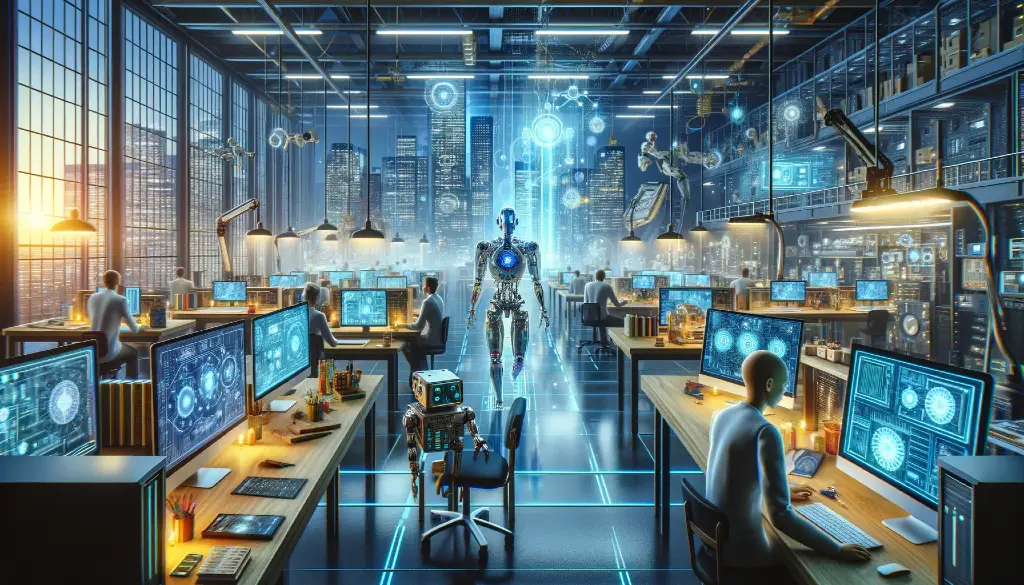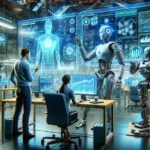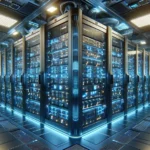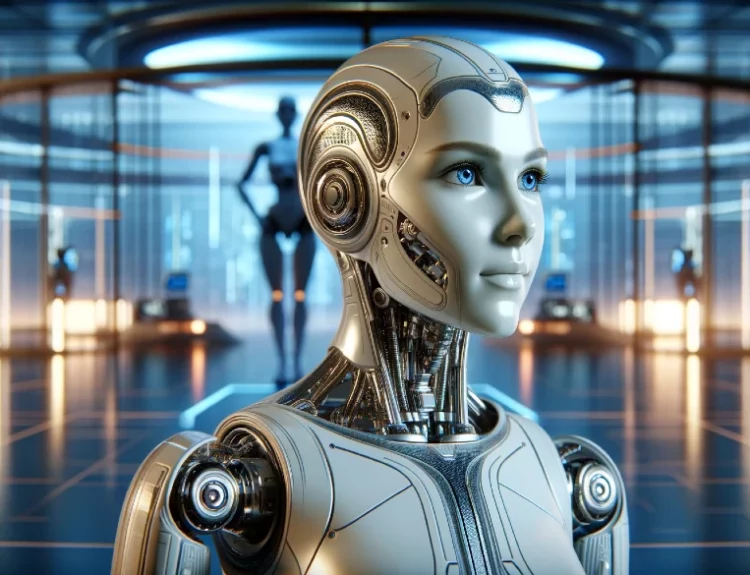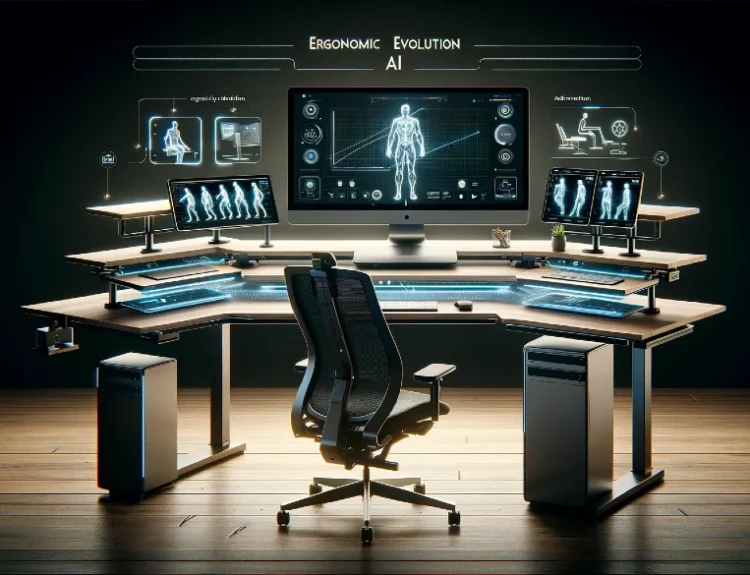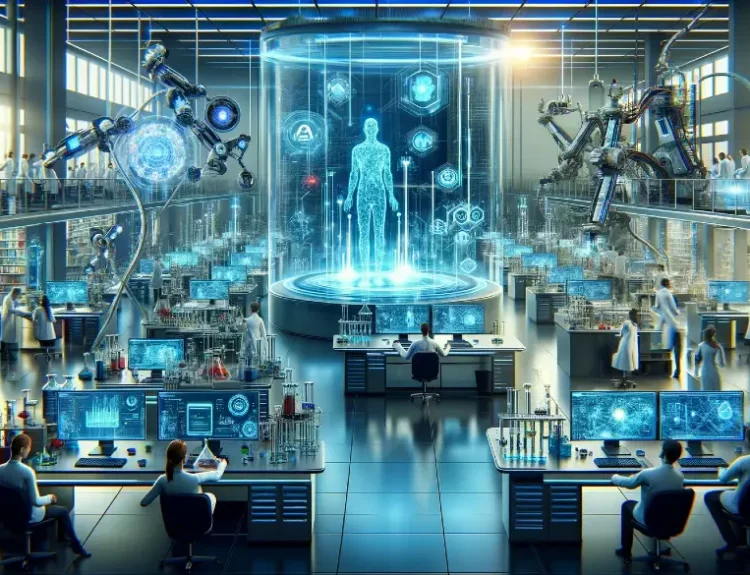Introduction
Imagine a world where machines not only think for themselves, but also design and build their own hardware. Science fiction, right? Well, not entirely. Artificial intelligence (AI) is rapidly evolving, blurring the lines between human and machine capabilities.
But here’s the surprising twist: AI isn’t here to replace computer engineers, it’s here to supercharge them. This dynamic duo of AI and computer engineering is poised to revolutionize everything from chip design to self-driving cars. Confused about how these two fields work together? You’re not alone. This blog will be your decoder ring, untangling the differences and synergies between AI and computer engineering, and revealing the incredible future they hold together.
AI vs Computer Engineering: A Clear Distinction
While both AI and computer engineering deal with the exciting world of technology, their areas of focus are quite distinct. Think of it like this: AI is the brain, constantly learning and adapting, while computer engineering is the body, building the physical systems that bring those intelligent ideas to life.
Let’s delve deeper:
- Artificial Intelligence (AI): This field is all about creating intelligent machines. AI focuses on algorithms and techniques that enable machines to learn from data, solve problems, and even exhibit some level of human-like reasoning. Subfields within AI include machine learning, which allows machines to learn without explicit programming, and deep learning, which utilizes complex artificial neural networks to mimic the human brain.
- Computer Engineering: This discipline centers on designing and developing the hardware and software that power computer systems. Computer engineers bridge the gap between theoretical computer science and practical applications. They create processors, circuits, memory systems, and the software that runs on them. (It’s important to note that computer engineering has a lot of overlap with computer science, but with a stronger emphasis on the physical hardware components).
Unveiling the Synergies: How AI Empowers Computer Engineering
Here’s where things get exciting! While AI and computer engineering are distinct fields, they work hand-in-hand to create powerful new technologies. Imagine AI as a toolbox filled with intelligent algorithms. Computer engineers can leverage these tools to revolutionize various aspects of their work:
- Hardware Optimization: AI algorithms can analyze vast amounts of data to optimize chip design, leading to more efficient and powerful processors.
- Software Development: AI can automate tasks like code generation and bug detection, freeing up engineers to focus on more complex problems.
- Robotics and Automation: AI plays a crucial role in controlling robots, enabling them to navigate their environment, make decisions, and perform tasks autonomously.
- Security: AI algorithms can be used to detect anomalies in network traffic and system behavior, significantly enhancing cybersecurity measures.
These are just a few examples, and as AI continues to evolve, the possibilities for synergy with computer engineering are truly boundless.
AI in Hardware Engineering: The Future Landscape
The future of hardware design is being shaped by AI. Here’s a glimpse of what’s to come:
- AI-powered Design Tools: Imagine software that utilizes AI to automatically design and optimize chips based on specific performance requirements. This could significantly reduce design time and cost, while pushing the boundaries of chip efficiency.
- Custom Hardware for AI: AI algorithms are becoming increasingly complex, requiring specialized hardware for optimal performance. AI itself could play a role in designing custom hardware tailored for specific AI tasks, creating a powerful feedback loop for future advancements.
AI Algorithms in a Computer Engineer’s Toolkit
The future of computer engineering is increasingly intertwined with AI. For computer engineers who want to stay ahead of the curve, understanding and utilizing AI algorithms is no longer a luxury, but a necessity. Here’s why:
- Integration Power: With a grasp of AI algorithms (like machine learning and deep learning), computer engineers can seamlessly integrate AI functionalities into their designs. This opens doors for creating intelligent hardware and software systems capable of learning and adapting on their own.
- Diverse Application Development: AI algorithms empower computer engineers to develop a wider range of applications across various fields. Imagine creating self-driving cars with intelligent decision-making capabilities, or designing medical devices that can learn and adjust to individual patients.
Career Paths at the Intersection of AI and Computer Engineering
The convergence of AI and computer engineering is creating exciting new career paths for those with the right skillset. Here are some hot opportunities to consider:
- AI Hardware Engineer: This role involves designing and developing hardware specifically for AI applications, such as specialized processors and accelerators. A strong understanding of both computer engineering principles and AI algorithms is crucial.
- Robotics Engineer: Robotics engineers combine their knowledge of mechanics, electronics, and computer programming to design, build, and control robots. As AI advances, the ability to integrate AI algorithms for navigation, decision-making, and object recognition becomes increasingly important in this field.
- Machine Learning Engineer (with a Computer Engineering Background): This unique combination allows you to build and deploy machine learning models on hardware you understand intimately. Your expertise in both worlds makes you a valuable asset in optimizing machine learning performance on specific hardware platforms.
These are just a few examples, and as AI and computer engineering continue to merge, we can expect even more innovative career paths to emerge. The key takeaway? Equipping yourself with both AI and computer engineering knowledge positions you to be a leader in shaping the future of technology.
Conclusion
We’ve unveiled the fascinating landscape where AI and computer engineering come together. AI is not a replacement for the ingenuity of computer engineers, but rather a powerful partner that can supercharge their capabilities. From optimizing hardware design to creating intelligent robots, the synergy between these fields holds immense potential for groundbreaking advancements.
As we hurtle towards a future filled with AI-powered innovations, the opportunities for those with expertise in both AI and computer engineering are vast and ever-expanding. Are you ready to join this dynamic revolution?
Here at Verdict, we’re passionate about pushing the boundaries of AI and its potential to benefit humanity. We believe in the power of collaboration and learning from real-world interactions. If you’re interested in diving deeper, check out our insightful blogs on:
- Mastering AI for Computer Systems: Explore how to leverage AI algorithms to optimize and enhance your computer systems.
- AI in Healthcare: Discover the exciting ways AI is transforming the healthcare industry, leading to more personalized medicine and improved patient outcomes.
Join the conversation, share your thoughts, and let’s build the future of AI together!


